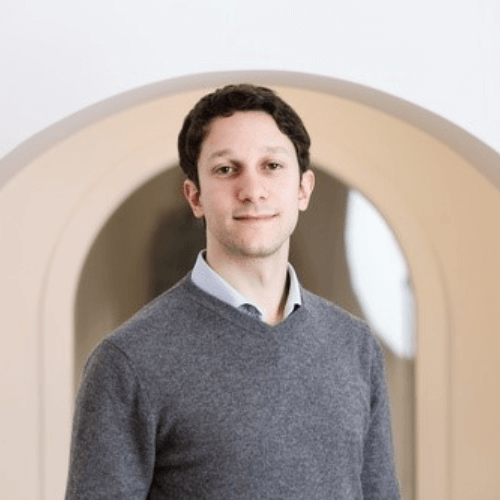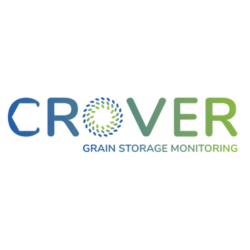When grains like wheat and barley are stored in sheds and silos for long periods of time, there is a risk of damage from insect infestations and mould. Long-term storage losses can be up to 20% and there is currently no single way to verify the moisture and temperature of grains being held.
Existing grain-monitoring solutions measure only one variable and have limited reach. Crover Ltd’s remote monitoring device provides real-time data across a range of measurements including temperature and moisture through the whole silo. It does this by using sensors in a small robotic device called a Crover. Similar to a drone’s wings in air, or a boat’s rotor in water, it uses a patented method to move through solid grains and build up a map of conditions within the grain storage unit.
Lorenzo Conti, founder of Crover, made his breakthrough when researching his doctorate in granular physics at the University of Edinburgh. He developed a method for moving through groupings of solid particles like sand, grains and powders. His company patented the core technology for locomotion in bulk solids and is now developing a version of the probing device that can be tested and reviewed by potential buyers.

Lorenzo’s robot system will allow customers such as farmers, brewers, cooperatives, as well as grain merchants, to identify adverse conditions in their stock. The potential for the technology is substantial. In one year, one Crover could save up to 380 tonnes of grain from damage.
Crover has won a dozen prizes and competitions in the last couple of years and as well as seed funding. The company now has five full-time members staff and an international Patent Corporation Treaty application pending. Potential future applications for the innovation include subterranean exploration and the recovery of underground objects buried in terrains like desert sand and the Moon’s lunar soil.
Lorenzo says: “Looking back over the last 12 months I can see how I’ve made the steps from being a researcher to becoming an entrepreneur. The Enterprise Fellowship and Higgs Centre for Innovation, Edinburgh, have made sure that I had a clear path to follow.”
Associated Programme

